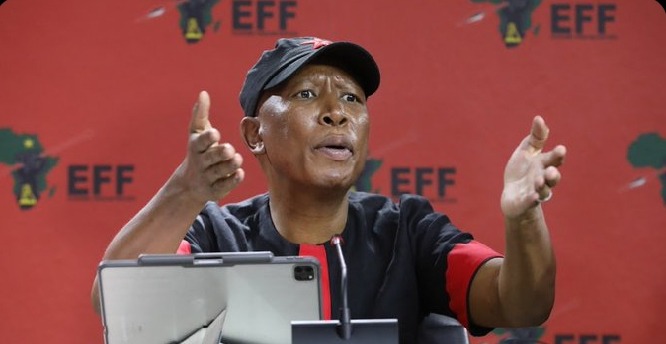- EFF leader Julius Malema has criticized Minister Gayton McKenzie for what he sees as a focus on image over impactful change in his role as Minister of Sport, Arts, and Culture.
- Malema argues that the sector needs policy-driven solutions and investments in community programs, not just media appearances or high-profile initiatives.
- McKenzie defended his approach, highlighting recent projects to modernize facilities and promote cultural events, sparking a debate about leadership effectiveness in South Africa’s cultural sector.
At a recent rally, Economic Freedom Fighters (EFF) leader Julius Malema voiced strong criticism toward Gayton McKenzie, Patriotic Alliance (PA) president and the current Minister of Sport, Arts, and Culture, questioning his approach and effectiveness in the role. Malema, known for his outspoken stance on public service leadership, suggested that McKenzie’s energy in the ministry appears more aimed at boosting his image than addressing the sector’s pressing challenges.
The comments came amid McKenzie’s series of high-profile initiatives and appearances intended to rejuvenate the sport and cultural sectors in South Africa. While some have lauded McKenzie’s proactive stance, Malema remains skeptical, stating, “Being seen to be doing work and actually transforming the sector are two different things.” According to Malema, true leadership in this role requires a shift from flashy displays to substantive policy changes that tackle core issues affecting the community, including limited funding, infrastructure shortages, and a lack of grassroots programs for young talent.
EFF members have echoed Malema’s concerns, arguing that McKenzie’s approach seems more focused on media attention than substantial progress. Malema noted that despite McKenzie’s active public profile, there has been little improvement in the conditions that artists and athletes face. “We cannot afford leaders who are more interested in being celebrities than in serving the people,” Malema emphasized, calling for long-term investments in local talent through community programs that could make lasting impacts.
In response, McKenzie defended his record in a social media post, highlighting his passion for the sector and commitment to elevating it. He pointed to recent projects focused on modernizing sports facilities and promoting cultural events as evidence of his dedication. “I’m here to make a real impact, not just to talk about it,” McKenzie wrote, addressing Malema’s critique.
This exchange between the two leaders has sparked a larger conversation among political analysts and the public. Some observers see Malema’s critique as a valid call for results-oriented leadership, while others argue it may be politically motivated, aimed at drawing attention to the EFF’s vision as an alternative voice in South African politics.
Analysts suggest that to counteract such criticism, McKenzie’s tenure will need to demonstrate clear, measurable improvements in the sector. Whether Malema’s words will lead to greater scrutiny of McKenzie’s approach or encourage a pivot to more policy-driven actions remains uncertain. The debate, however, underscores the broader question of effective governance in areas that deeply affect South Africa’s social and cultural identity.






















